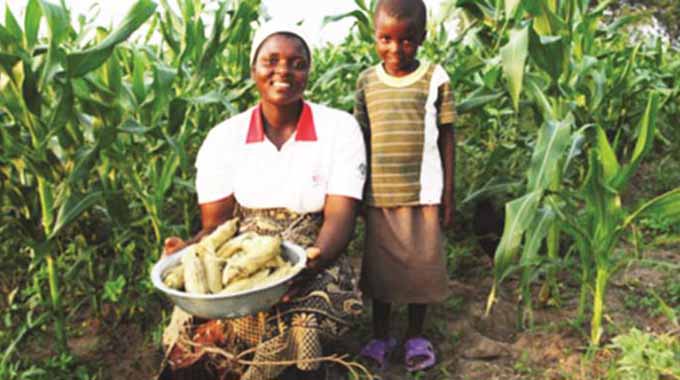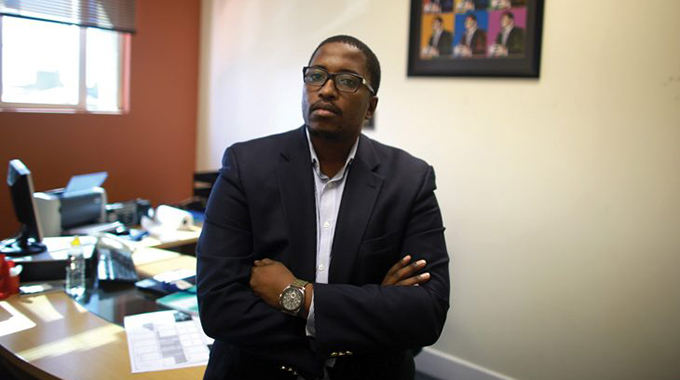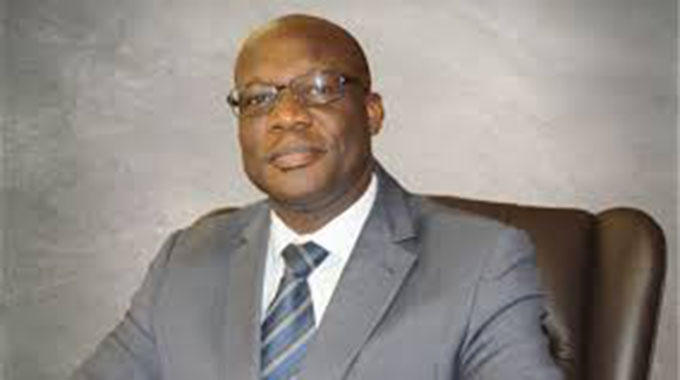Escapism and denialism

Reason Wafawarova on Monday
IT is sad to note that 18 years after Zimbabwe repossessed colonially stolen farm land there is a grounding narrative that says agricultural production has declined because land is now in the hands of “unskilled and incapable black farmers”.
We bear responsibility for this narrative, and it is an uncomfortable reality we cannot dismiss, not even in the name of sovereignty or self-determination.
In one of her popular songs, gospel singer Amai Olivia Charamba asserts that Africa’s problem is that we, the children of Africa, have told ourselves that we are a small people, we are mere employees and servants; we will always follow; and we never lead.
This is what happens when we do not know, or when we forget our history. Eurocentric civilisation has been used over the past two centuries to motivate forgetting in the African personality, to create amnesia, and to maintain repression, be it mentally, physically or economically.
Many of our people, as individuals, would rather seek to forget certain aspects of our history; they do not want to confront this history because they want to escape anxiety, anger, fear, shame and even guilt. Some young Zimbabweans will easily dismiss history saying: “Colonialism ended 38 years ago; the liberation war was fought four decades ago; this is 2018, and all these things have nothing to do with us today”. They just do not want to be reminded, because they want to escape their own inadequacies.
The reality of the black Zimbabwean today is that we are all affected and suffering from the 1890 colonial experience, regardless of whether we know what happened or not. In fact, it is worse for us if we do not know what happened, as is evidently the case.
Russell Jacoby writes in his book, “Social Amnesia”: “Exactly because the past is forgotten, it rules unchallenged. To be transcended it must be remembered. Social amnesia is society’s repression of remembrance.”
Simply because we choose not to remember what happened at independence, or what happened during colonialism; what happened during the liberation struggle – that we choose not to learn of the traumas of our past; that does not mean that the history we are trying to escape does not control our behaviour.
Amos N. Wilson argues that “the most powerful forces that shape human behaviour are those factors that are consciously not remembered by human beings, that (become) unknown to the person, those experiences a person can swear he has never heard”.
That becomes the paradox of our African predicament. We forget the aspects of our lives that actually shape our behaviour today. We forget that inferiority was nurtured into us by the colonial legacy and that it has shaped our behaviour. Where are we running to in our time of need, even when the West is looking East in the wake of the rise of China?
So we have a people who do not want to remember the painful parts of our past. They unconsciously try to forget the brutalities of slavery, the injustice over Africa’s stolen wealth, the segregation of the colonial legacy, the incapacitating subjugation that created employees out of us, and some of us have even succeeded in forgetting these experiences completely; but this does not mean those experiences do not continue to operate within our personalities.
So we look at ourselves and say we cannot possibly turn around our economy without the guidance of the white person. We tell ourselves we are blacks, and it is simply not possible for us to run commercial farms productively and profitably.
We scorn at the African initiative, we deride local investment. We say Cyril Ramaphosa is about to destroy South Africa by advocating blacks in South Africa to assume control of their own resources.
South Africa has a history of repression of the black person, and that repression has only been lifted politically while economic marginalisation of the black masses has gone unabated for 24 years after independence.
Escapism teaches us to escape this economic repression and such things as the poverty regime in Soweto by pretending that we cannot remember apartheid; pretending that South Africa is an all-inclusive democracy whose “internationally acceptable” status as pioneered by Nelson Mandela must be preserved. We casually accept that the high crime rate in Johannesburg is just part of South African life.
So we are in a democracy in Zimbabwe that makes us accept that we cannot run our own economy, that we cannot run commercial farms, a democracy that says we cannot control even half of the wealth of the country, a democracy that makes us ashamed of having a history of “mistreating” the civilised and capable white man during Mugabe’s era.
So we are supposed to be ashamed and regret that we took back our land. We are supposed to be ashamed that Ramaphosa wants blacks in South Africa to have their land back. We are supposed to be ashamed and to view black economic empowerment as undemocratic, unsound and uncivilised.
Our land reform programme is described as disastrous in the West, and South Africa is being threatened with sanctions and isolation should they follow the “disastrous’’ route started by neighbouring Zimbabwe.
We live a consciousness that tells us that prior to slavery and colonialism we Africans were essentially culturally invisible and savage, and that we only achieved civility and visibility when the European came on the scene. This is the incapacitating mentality that makes us the most unproductive people on the planet.
This is precisely why many, if not most Zimbabweans, doubt the capacity of the new farmer; that is why we cannot envisage an economy whose means of production is controlled by local investors. We think on our own with no white input we are uncivilised savages incapable of meaningful economic achievement.
Those of us who, in the name of human rights and democracy, may choose to repress any knowledge of our colonial or apartheid experience should heed the fact that people who suffer from social amnesia live lives that are determined by fear, anxiety, terror and trauma.
In fact, the economic sanctions imposed on Zimbabwe by the West over the last 18 years were specifically targeted at creating these four aspects of social amnesia. At this moment we have learnt our lessons. We are afraid, anxious, terrified and traumatised by the sanctions- induced poverty we have suffered for nearly two decades.
We saw that Nelson Chamisa’s campaign was centred on instilling fear, anxiety, terror and trauma in the poor masses. The people were told endlessly and variously that without the West their lives will always be miserable, without the whites Zimbabwe will just sink, and that only the MDC Alliance is the trusted party that will bring back the joy of associating with the politics of the European. Right now Nelson Chamisa says he holds the keys to Western benevolence, and he has more than two million supporters who believed him.
Now it is all shifting to investment policies. We are told white investors will not come to Zimbabwe because of Zanu-PF.
But we cannot build a nation on fear, anxiety, terror and trauma. Those things must never be allowed to be the determining factors of how Africa shapes its future.
As it is, we live not in terms of our reality or in terms of the integration of our reality, but in terms of what we are afraid of, what we are ashamed of, what we are trying to hide from; and what we are trying not to confront ourselves with.
Yes, many of us live a life of denial, escape and addiction. We deny our reality, escape our responsibilities and are addicted to Western aid. Tendai Biti was suggesting recently that aid and FDI must anchor our GDP, lamenting that out tax revenue stands at 30 percent of the GDP, and that we must cut our taxes and plead poverty through the HIPC programme. He ranted against Finance and Economic Development Minister Professor Mthuli Ncube for declaring the country a 25 billion dollar economy, in the process stripping us of the much needed poverty tag that would allow us aid unabated from the West. This is how our highly rated politicians think.
What we have done is that our older generation has passed on escapism as history to the younger generation, and that history of escapism has shaped the personality of our average youngster today.
It is good for Europe and the West that we Africans stand robbed of our true history. It serves a great purpose for the imperial order.
Now we have a young generation that devotes energy to not knowing. They direct perception to unknowing. They are actually engaged in a struggle to not know, and they are adamant that they would rather not know that Africans are capable of meaningful civilisation.
But not knowing one’s history is just living a lie. One cannot escape history by choosing not to know. What happens is that when one chooses not to know their history, the whole effort brings one under the domination of the more pernicious effects of that history and it leads to self-alienation and self-destruction.
This writer was up in Australia’s Northern Territory for eight months in 2007, and interacted a lot with Aboriginal communities up there. To say the majority of the encounters were appalling is a gross understatement of the reality.
The appalling contrast of hopeless black men and women lying drunk, dirty, rejected and dejected on the streets of Darwin; while their smartly dressed fellow white citizens strode over their motionless bodies on their way to air-conditioned offices and expensive restaurants, was apparent and telling.
Talking to and interviewing both groups revealed the ever pernicious effects of Australia’s history on the Aboriginal people – a history Aboriginal people are now expected to forget after a hard-won and long-awaited apology from Kevin Rudd in 2008.
As Africans suffering from amnesia, we now live a life based on negation; not on affirmation, growth or development. Hankering for aid is a negation, crying for internationally organised elections is a negation, hoping to exploit the country’s resources by giving away the resources to Western companies is a negation, telling ourselves that the new black farmer is incapable of farming is a negation, and doubting our capacity to empower each other economically as blacks is a negation.
When are we going to aspire for affirmation, for growth and for development? When we live our lives as a negation we sink deeper into inferiority, deeper into hopelessness, and we condemn future generations to perpetual poverty.
A negated history negates its own people in return, and when that happens we live a puzzle of a life. This is why we think it is sensible to ask questions like “What is wrong with us Africans?” or to say “We cannot change this anymore.”
Some of us even subscribe to the Ham mythology and we tell ourselves that blacks were destined to suffer in poverty.
Now globalisation is being used as the latest tool to make us forget history. This writer is often reminded that in the 21st century it is backward “to see colour”. So these “progressive” black brothers brag that they are civilised and they “do not see colour”. Of course, they see colour; but hey, let us assume they indeed do not see colour.
Does that mean that others do not see their colour too? They see no inequality by choice, but that does not make the world equal, does it?
So to be accepted as civilised and as a global citizen one claims they see no colour, just merit and merit alone. Idealism is always impressive.
The next things we hear are complaints after complaints in the Diaspora that blacks are manipulated in workplaces and other forums. Of course, when you alone see no colour, you get manipulated because you have blindfolded yourself around people with open eyes.
So in this era of campaigns for democracy and freedoms what do we get? We are supposed to vehemently deny the imperialist’s terroristic rule on earth, to deny his evil, to deny his domination, and to deny his destruction of the planet and its life.
In the name of the forward march to a better life we must deny that we have been abused and brutalised in history.
The reality is that we are being told who to become because we do not know who we are. This is why we aspire to be little Western democracies all over Africa.
If we buy into the mythology that blacks have failed agriculture in Zimbabwe and that black-controlled businesses are a given disaster then we are doomed as a nation.
We ruined our indigenisation and economic empowerment policies in the past because of people who wanted to be indigenous on behalf of everyone else; those who thought they were entitled to eat and be rich on our collective behalf.
Reaping where one did not sow is a negation and not an affirmation. It has absolutely nothing to do with growth or development. It is a gross betrayal of self-belief and a cowardly escape from responsibility.
Anyone who is stranded with a piece of land because they have no farming ideas must repent and start producing, or simply vacate that land.
Equally anyone who dreams of a day they will just be invited into a thriving business on the basis of their social or political standing must just stop that kind of primitive hallucination. That is what many thought when Robert Mugabe was preaching the 51 percent economic empowerment policy.
Greatness is achieved by hard work and affirmation, not by miraculous political thrusts.
We have a country to build and a future to shape, and in our collective being as Zimbabweans we have to begin to believe in productivity, accountability and responsibility.
Zimbabwe we are one and together we will overcome. It is homeland or death!
Reason Wafawarova is a political writer based in SYDNEY, Australia









Comments